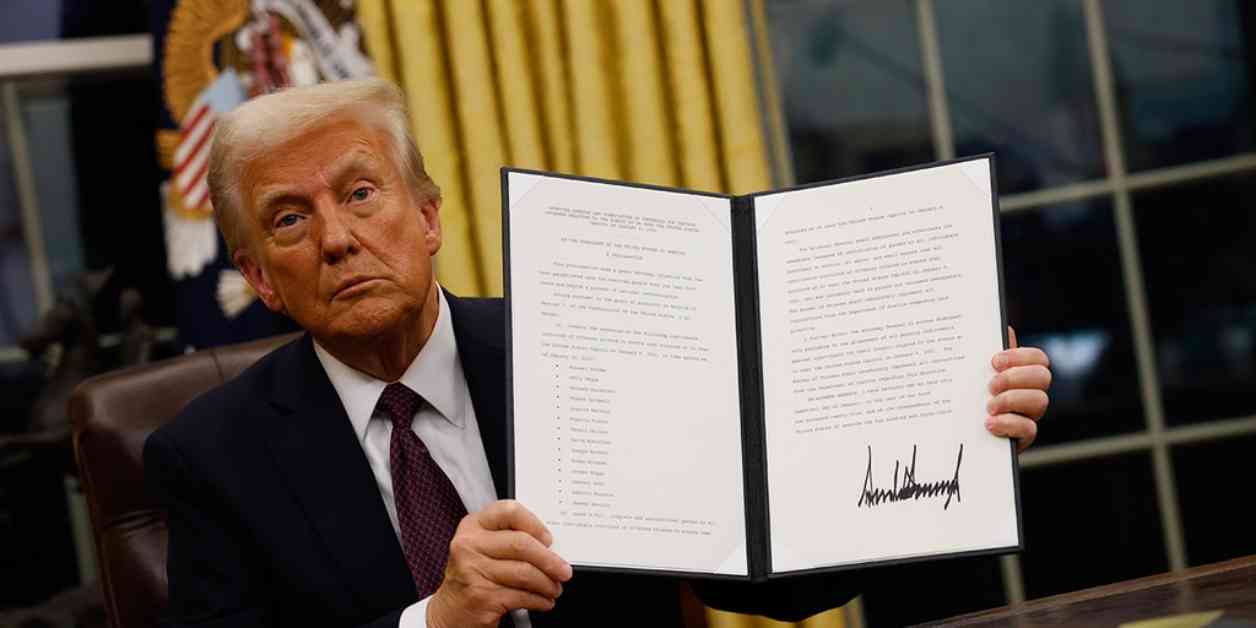A federal judge recently issued a preliminary injunction on parts of the Trump administration’s executive orders regarding diversity, equity, and inclusion (DEI). The ruling, granted by U.S. District Judge Adam Abelson in Baltimore, a nominee of President Biden, blocks the sections of the orders that aim to terminate federal support for programs associated with DEI. It also prohibits the administration from canceling contracts that promote diversity, equity, or inclusion.
The executive orders signed by President Trump directed federal agencies to terminate all “equity-related” grants or contracts, and required federal contractors to certify that they do not promote DEI. However, the injunction, according to Judge Abelson, raises concerns about constitutional violations and free speech.
In a hearing, Abelson emphasized the potential harm caused by the executive orders, describing them as public, vague, and threatening. He expressed worries that businesses working with the government might feel discouraged from openly supporting DEI initiatives. The ruling follows a lawsuit filed by the city of Baltimore, the National Association of Diversity Officers in Higher Education, the American Association of University Professors, and the Restaurant Opportunities Centers United against the Trump administration.
The plaintiffs argued that the executive orders represented presidential overreach and infringed upon free speech. They contended that the administration’s decisions on whether grants are ‘equity-related’ left them in limbo, affecting educators, academics, students, workers, and communities across the country. The lawsuit accused President Trump of encroaching on Congress’ authority to promote his personal beliefs, emphasizing the limits of presidential power.
Subheadings:
Expert Insights and Legal Challenges Administration’s Defense and Additional Lawsuits
During a Wednesday hearing, the Trump administration defended its position by claiming that the president was targeting DEI programs that violated federal civil rights laws. Attorney Aleshadye Getachew argued that the actions were intended to correct overreach and pull back on DEI statements. Meanwhile, a second federal lawsuit was filed in the U.S. District Court for the District of Columbia by the NAACP Legal Defense Fund and Lambda Legal on behalf of nonprofit advocacy organizations.
This new complaint takes aim at Trump’s executive orders, specifically those titled “Ending Radical and Wasteful DEI Programs and Preferencing,” “Defending Women From Gender Ideology Extremism and Restoring Biological Truth to the Federal Government,” and “Ending Illegal Discrimination and Restoring Merit-Based Opportunity.” White House spokesman Harrison Fields dismissed the lawsuits as part of the left’s resistance, asserting that the administration was prepared to face them in court.
The legal battles over the executive orders on DEI highlight broader societal debates on diversity, equity, and inclusion, underscoring the complex intersection of politics, law, and social justice. As the cases progress through the legal system, they are likely to have significant implications for federal policies and practices related to diversity and civil rights.
The ongoing legal challenges against the Trump administration’s executive orders illustrate the enduring tensions surrounding issues of diversity, equity, and inclusion in the United States. While the courts navigate these complex legal questions, the broader public discourse on these matters continues to evolve, shaping the future of policies and practices concerning diversity and civil rights in the country.

